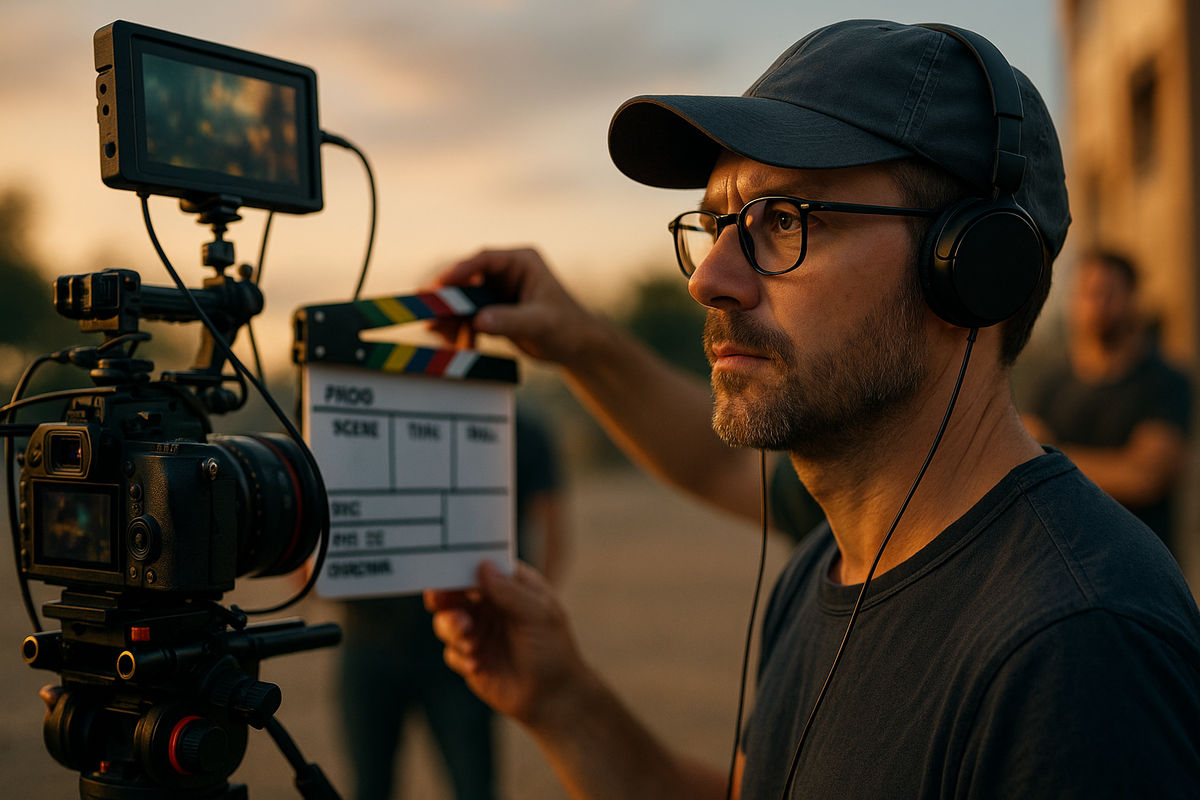
While financial pressures are driving much of Hollywood’s transformation, political, cultural, and technological forces are exerting just as much — if not more — influence on the industry's evolution.
Political polarization and global sensitivities are now front and center in filmmaking decisions. Studios have become acutely aware of how cultural flashpoints can impact a project's success, both domestically and internationally. Some films are being designed to appeal to specific ideological audiences, like Sound of Freedom, while others try to carefully thread the needle, avoiding controversy altogether to ensure access to lucrative global markets, particularly in China. In many cases, alternate versions of films are being created for different regions, reflecting diverse standards and political climates.
At the same time, the rise of AI in content creation sparked major industry upheaval. The 2023 WGA and SAG-AFTRA strikes underscored deep concerns about the role of AI in screenwriting, acting, and post-production. New contracts now include explicit protections around the use of AI to generate scripts, replicate actor likenesses, and alter performances digitally. Even as the technology offers exciting new creative tools, it has also raised existential questions about artistic integrity and labor rights in Hollywood.
Perhaps nowhere is the spirit of reinvention more alive than in the world of independent film. Alternative financing models are booming. Equity crowdfunding, direct-to-consumer campaigns, and private equity investments are increasingly common, allowing filmmakers to bypass traditional studio systems altogether. Prestige projects, once the domain of major studios, are now being quietly funded by high-net-worth individuals, boutique firms, and international co-productions.
In parallel, a "startup mindset" is taking hold among filmmakers. Production companies are operating more like nimble startups — assembling temporary teams, leveraging remote collaboration, and building flexible financing packages to get projects off the ground. This decentralized approach is not only cost-effective but also creatively liberating, allowing for more diverse voices and riskier storytelling.
Talent relationships with studios are evolving too. Increasingly, A-list actors, directors, and producers are creating their own brands and companies to control their creative destinies. Examples like Reese Witherspoon’s Hello Sunshine or Ryan Reynolds' Maximum Effort show that stars can now operate as entrepreneurial powerhouses, developing, funding, and distributing their own projects — often with huge financial upside.
At the audience level, the demand for authenticity is reshaping marketing and fan engagement. Viewers want more than glossy trailers; they want behind-the-scenes access, personal insights from the cast and crew, and real-time interaction. Successful marketing strategies now blend traditional campaigns with influencer-style content, fan events, and interactive social media moments that build deeper loyalty and connection.
Ultimately, the future of the film industry will be defined by its ability to adapt — not just to financial realities, but to cultural and technological upheaval. The old studio-dominated system is giving way to a new ecosystem: one that is leaner, more global, politically aware, and increasingly driven by creators themselves.
In this high-stakes environment, one thing is certain: the movies are far from dead. But the way they are made, marketed, and monetized will never be the same again.
Chris Sturges, Business Development Director for
Suspiciously Convenient Productions Inc
Contact: chris@suspiciouslyconvenient.com
Tags: #Hollywood North #Indie Film Revolution #Future Of Filmmaking
#Virtual Production #Cinema Reimagined #Hollywood Trends



